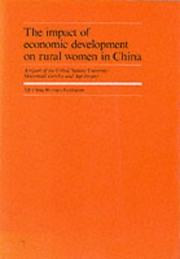| Listing 1 - 10 of 59 | << page >> |
Sort by
|
Book
ISBN: 9659005415 9789659005413 Year: 1996 Publisher: Jerusalem : The Hebrew University, Magnes Press,
Abstract | Keywords | Export | Availability | Bookmark
 Loading...
Loading...Choose an application
- Reference Manager
- EndNote
- RefWorks (Direct export to RefWorks)

ISBN: 0252063201 9780252063206 Year: 1993 Publisher: Urbana (Ill.) : University of Illinois press,
Abstract | Keywords | Export | Availability | Bookmark
 Loading...
Loading...Choose an application
- Reference Manager
- EndNote
- RefWorks (Direct export to RefWorks)
Frauenverband. --- Geschichte. --- Organisaties. --- Vrouwen. --- Vrouwenorganisaties. --- Women volunteers in social service --- Women volunteers in social service. --- Women --- History. --- Social conditions. --- Societies and clubs --- Societies and clubs. --- USA. --- United States.
Book
ISBN: 9783531125411 3531125419 Year: 1994 Publisher: Opladen: 2., überarb. Aufl: Westdeutscher Verlag,
Abstract | Keywords | Export | Availability | Bookmark
 Loading...
Loading...Choose an application
- Reference Manager
- EndNote
- RefWorks (Direct export to RefWorks)
Social service --- Women volunteers in social service --- Women social workers --- Feminism
Book
ISBN: 1476640491 9781476640495 1476681392 9781476681399 Year: 2021 Publisher: Jefferson, North Carolina : Toplight,
Abstract | Keywords | Export | Availability | Bookmark
 Loading...
Loading...Choose an application
- Reference Manager
- EndNote
- RefWorks (Direct export to RefWorks)
"Judith Love Schwab had many duties as an international volunteer, but some of the most memorable were following meerkats in the Kalahari Desert, collecting data on early gardens and buildings for archaeologists on Easter Island, helping care for underserved babies in Romania, teaching English in Poland, sifting for bones and shells in Portugal and working with severely disabled adults at an institution in Greece. While recounting these experiences, Schwab also examines the limitations imposed on her as a female growing up in the middle of the 20th century and the inhibitions she overcame to begin traveling in her fifties."--
Women travelers --- Women volunteers --- Volunteer tourism. --- Independent travel. --- Women --- Conduct of life. --- Schwab, Judith L. --- Travel.
Book
ISBN: 0739138537 9780739138519 9780739138533 129955766X 9781299557666 0739138510 Year: 2018 Publisher: Lanham, Maryland : Lexington Books,
Abstract | Keywords | Export | Availability | Bookmark
 Loading...
Loading...Choose an application
- Reference Manager
- EndNote
- RefWorks (Direct export to RefWorks)
Voices of Privilege and Sacrifice from Women Volunteers in India: I Can Change uses data collected from educated, urban, middle and upper-class women at the forefront of women's empowerment movements as volunteers and activists in NGOs in India, who consider themselves sometimes feminist and sometimes not. It sheds light on how these women in a fast-changing global economy negotiate their daily lives amid pressures of tradition, and if they are able to transition from a traditional patriarchal society to an egalitarian democratic civil society.
Feminism --- Women volunteers in social service --- Voluntarism --- Women --- Non-governmental organizations --- Social conditions.
Book
ISBN: 159416634X Year: 2018 Publisher: Yardley, Pennsylvania : Westholme Publishing,
Abstract | Keywords | Export | Availability | Bookmark
 Loading...
Loading...Choose an application
- Reference Manager
- EndNote
- RefWorks (Direct export to RefWorks)
Most of Clara Barton's biographers have accepted her statements at face value, but they stand on shaky ground, for Barton was a relentless self-promoter and often embellished her stories in an effort to enhance her accomplishments. Donal Pfanz revisits her claims, comparing the information in her speeches with contemporary documents, including Barton's own wartime diary and letters. In doing so, he provides the first balanced and accurate account of her wartime service--a service that in the end needed no exaggeration.
Women volunteers --- Barton, Clara, --- American Civil War (1861-1865) --- 1861-1865 --- United States --- History --- Medical care.
Book
ISBN: 1779223196 9781779223197 1779223188 9781779223180 1779223218 Year: 2017 Publisher: Avondale, Harare, [Zimbabwe] : Weaver Press,
Abstract | Keywords | Export | Availability | Bookmark
 Loading...
Loading...Choose an application
- Reference Manager
- EndNote
- RefWorks (Direct export to RefWorks)
Drawing on communications ‘rescued' from the shredders in the last days of Rhodesia, enlivened by photographs and memories - both her own and those of her colleagues - Maia Chenaux-Repond tells the story of her work as the Provincial Community Development Officer (Women) for Mashonaland and South in the Ministry of Internal Affairs in the 1970s. There are no records whatsoever in the National Archives of Zimbabwe about the Community Development Section (Women), even though it was active in all the provinces. In the absence of other documentary sources, and all other provincial officers long having emigrated or died, this account of her work fills a significant gap in the pre-independence history of Zimbabwe. The crucial focus of the Women's Section on improving the lives and skills of women in the rural areas became progressively more difficult when the civil war intensified from the early 1970 as rural people - and the development workers themselves - were moved into ‘Protected Villages', and as the Ministry became increasingly militarized.
Women in community development --- Community development --- Women volunteers in social service --- Zimbabwe. --- Chenaux-Repond, Maia. --- Repond, Maia Chenaux --- -Zimbabwe.
Book
ISBN: 9783837511789 3837511782 Year: 2014 Publisher: Essen : Klartext,
Abstract | Keywords | Export | Availability | Bookmark
 Loading...
Loading...Choose an application
- Reference Manager
- EndNote
- RefWorks (Direct export to RefWorks)
"Die Trümmerfrau gehört zum festen Repertoire nahezu jeder historischen Darstellung der Nachkriegszeit, ganz gleich, ob in TV- und Printmedien, in Schulbüchern oder in Ausstellungen der historischen Museen. Seit Anfang der 1950er Jahre bis in unsere unmittelbare Gegenwart kam es darüber hinaus in den unterschiedlichsten Städten immer wieder zur Errichtung von Trümmerfrauen-Denkmälern. Leonie Treber hat erstmals die überlieferten Fakten geprüft und kommt zu dem Ergebnis, dass die Trümmerfrauen ein Mythos sind; es gibt nur ganz wenige Belege dafür, dass tatsächlich Frauen im Krieg und in der Nachkriegszeit Bombentrümmer beseitigt haben. Wie für Mythen gemeinhin üblich, handelt es sich bei den heute verbreiteten stereotypen Trümmerfrauen-Narrativen jedoch keineswegs um reine Lügen, vielmehr enthalten sie einige Brocken Wahrheit, die jedoch mitunter verfälscht und aus dem Kontext gerissen sind bzw. Wesentliches verschweigen. Die Autorin stellt dar, wie die Enttrümmerung der deutschen Städte tatsächlich stattgefunden hat. Meist waren professionelle Firmen mit technischem Großgerät und Fachkräften die Hauptakteure bei der Trümmerräumung. Und sie zeigt, wie der Mythos Trümmerfrau mit all seinen Facetten entstanden ist. Die Grundlagen für den Mythos der Trümmerfrau wurde bereits in der unmittelbaren Nachkriegszeit gelegt. Eine Analyse der zeitgenössischen Presseerzeugnisse von 1945 bis 1949 legt die dabei entworfenen Bilder offen und fragt nach dem Ursprung des Trümmerfrauen-Begriffs. Die Traditionslinien der Trümmerfrauen reichen in der DDR bis ins Jahr 1945 zurück und sind seitdem niemals abgebrochen, sondern kontinuierlich gepflegt worden. Die lange und stabile Tradierung der Trümmerfrau in der Erinnerungskultur der DDR trug somit wesentlich dazu bei, dass sich aus den getrennten und zum Teil diametral gegenüberliegenden Erinnerungssträngen der BRD und der DDR schließlich der gesamtdeutsche Erinnerungsort der Trümmerfrau flechten ließ."
Book
ISBN: 0791479064 1435638980 9781435638983 0791472973 9780791472972 9780791479063 Year: 2008 Publisher: Albany : State University of New York Press,
Abstract | Keywords | Export | Availability | Bookmark
 Loading...
Loading...Choose an application
- Reference Manager
- EndNote
- RefWorks (Direct export to RefWorks)
Case study of the life of a feminist organization in a changing political and funding climate.
Feminist theory --- Women's rights --- Teenage girls --- Young women --- Feminism --- Women in community organization --- Community organization --- Women volunteers in social service --- GirlZone (Organization)

ISBN: 0585258503 9780585258508 9280808125 9789280808124 Year: 1993 Publisher: [Place of publication not identified] United Nations University
Abstract | Keywords | Export | Availability | Bookmark
 Loading...
Loading...Choose an application
- Reference Manager
- EndNote
- RefWorks (Direct export to RefWorks)
Women in rural development --- Rural women --- Gender Studies & Sexuality --- Gender & Ethnic Studies --- Social Sciences --- Women --- Rural development --- Women volunteers in social service --- China --- Rural conditions.
| Listing 1 - 10 of 59 | << page >> |
Sort by
|

 Search
Search Feedback
Feedback About UniCat
About UniCat  Help
Help News
News